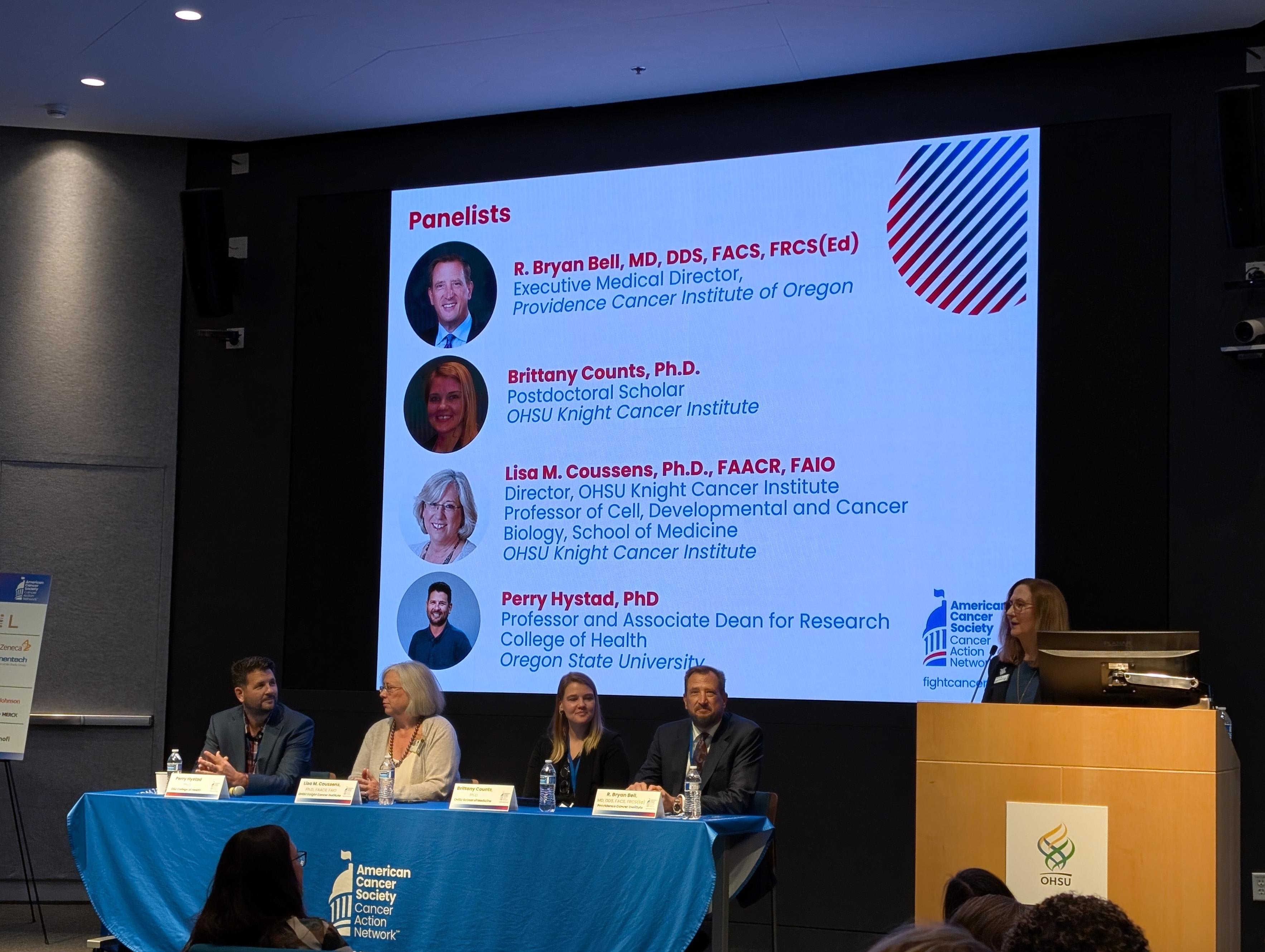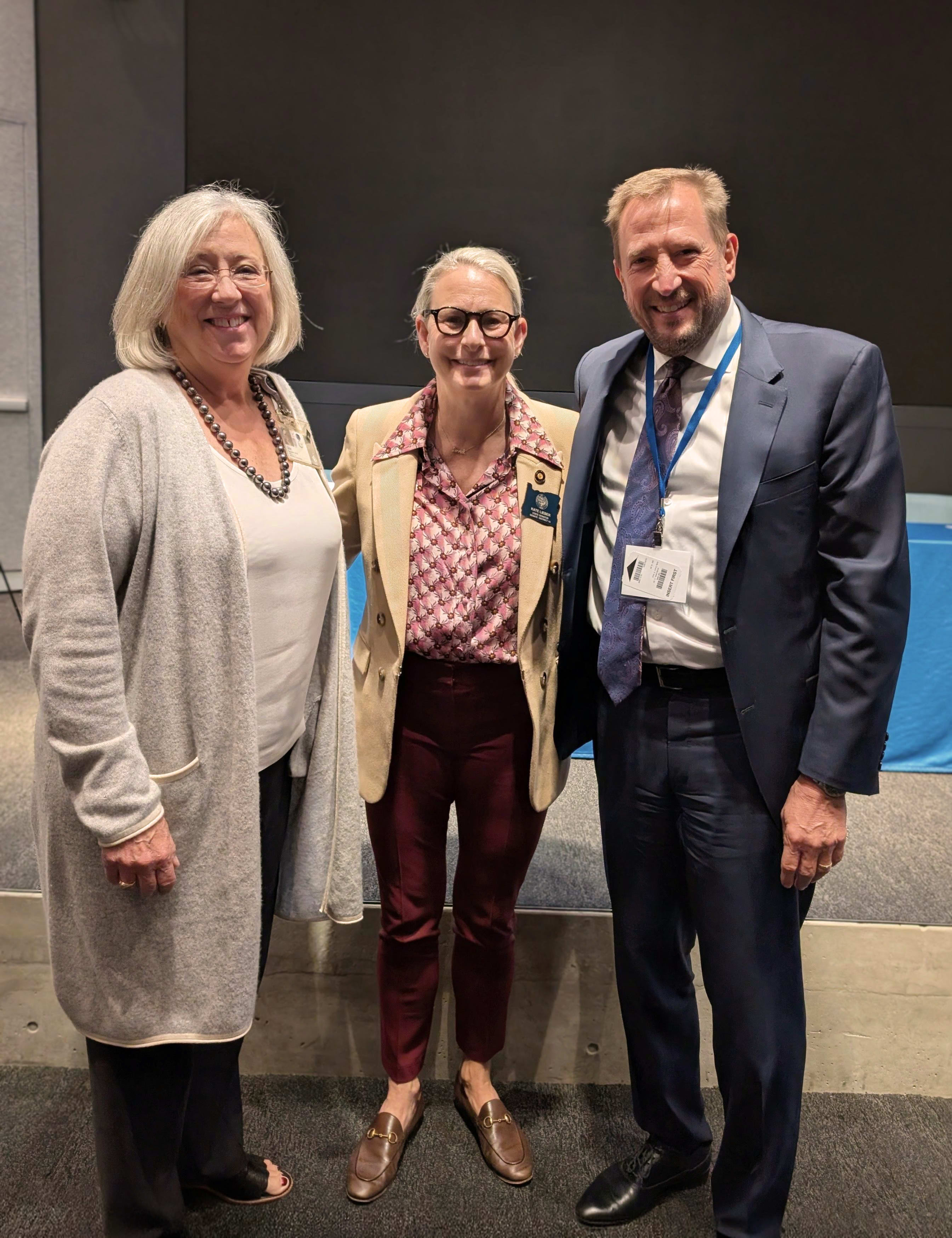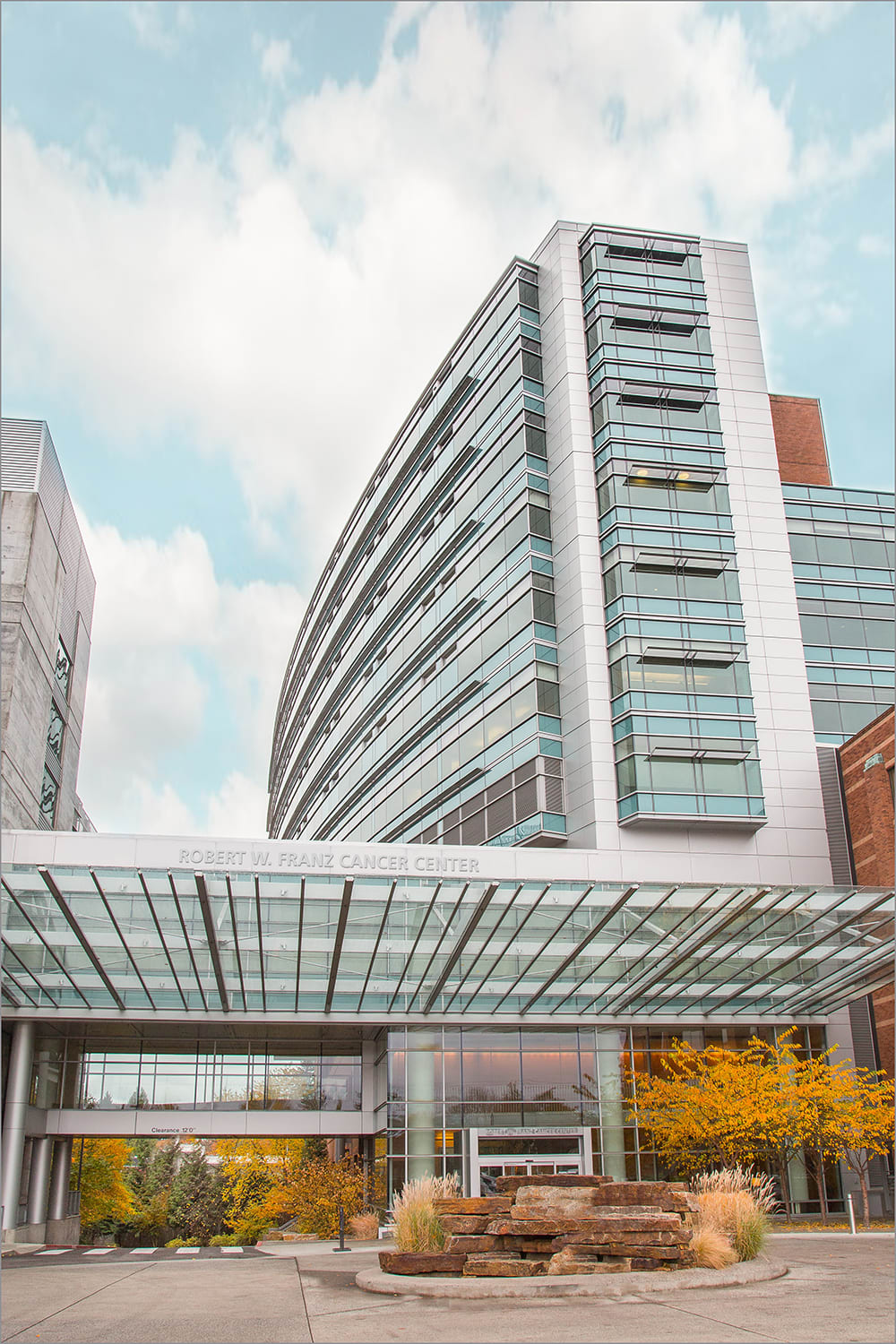 Collaboration took center stage on October 15, when Oregon leaders in cancer research, policy and advocacy gathered for the first Research & Policy Breakfast, sponsored by the American Cancer Society Cancer Action Network (ASC CAN).
Collaboration took center stage on October 15, when Oregon leaders in cancer research, policy and advocacy gathered for the first Research & Policy Breakfast, sponsored by the American Cancer Society Cancer Action Network (ASC CAN).
Held at Oregon Health & Science University (OHSU), the event featured a lively, poignant panel discussion on how collaboration and funding fuel progress in cancer research and care and how Oregon is a leader in these efforts.
Providence Cancer Institute has a longstanding partnership with the American Cancer Society, working together to advance cancer prevention, research and patient support. That shared commitment to collaboration was reflected throughout the morning’s discussion.
Experts in the field

R. Bryan Bell, M.D., D.D.S., FACS, FRCS(Ed)
Panelists included R. Bryan Bell, M.D., D.D.S., FACS, FRCS(Ed), executive medical director of Providence Cancer Institute and director of the Earle A. Chiles Research Institute; Lisa M. Coussens, Ph.D., FAACR, FAIO, director, OHSU Knight Cancer Institute, School of Medicine; Perry Hystad, Ph.D., professor and associate dean for research in the College of Health at Oregon State University; and Brittany Counts, Ph.D., postdoctoral scholar, laboratory of Dr. Teresa Zimmers, OHSU.
Guests also heard remarks from Shereef Elnahal, M.D., M.B.A., president of OHSU; Brian J. Druker, M.D., president of the OHSU Knight Cancer Group; Oregon State Senator Kate Lieber, J.D., and Kathy Ottele, cancer survivor, advocate and ASC CAN volunteer.
Dr. Bell spoke passionately about the remarkable progress in cancer research over the past three decades, especially in immunotherapy, and how the work being done at Providence Cancer Institute and OHSU has contributed to improved survival rates.
“I think we can all be very proud of the impact Oregon has had on the practice of oncology,” he said. "This state has had an outsized influence.”
Looking ahead
Panelists agreed that continued progress in cancer research depends on funding, multidisciplinary collaboration and the smart use of new technologies.
“We’re using technology in new ways to connect patients with research opportunities,” Dr. Bell said. “It’s helping us predict which treatments might work best and expanding access to clinical trials.”
At a time when scientific research is challenged by shifting priorities and limited resources, the discussion served as a call to action and a source of optimism for what’s possible when we work together for the greater good.
About Providence Cancer Institute
 Providence Cancer Institute is one of the leading providers of cancer care in Oregon and a global leader in immuno-oncology. Through its research division, the Earle A. Chiles Research Institute, patients have access to state-of-the-art genomic sequencing, adoptive cellular therapies and a robust clinical research portfolio comprising early phase, investigator-initiated, cooperative group and industry-sponsored trials. Learn more at providence.org/ORcancer.
Providence Cancer Institute is one of the leading providers of cancer care in Oregon and a global leader in immuno-oncology. Through its research division, the Earle A. Chiles Research Institute, patients have access to state-of-the-art genomic sequencing, adoptive cellular therapies and a robust clinical research portfolio comprising early phase, investigator-initiated, cooperative group and industry-sponsored trials. Learn more at providence.org/ORcancer.
Subscribe to Finish Cancer Through Research newsletter to follow science breakthroughs reshaping cancer care at Providence Cancer Institute.
Related news
Next generation therapy for men with mCRPC may extend survival
Behind the science: Celebrating our cancer research administrator























